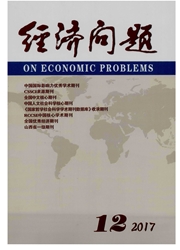

 中文摘要:
中文摘要:
基于劳动分工理论,建立了教育发展、专业化与经济增长关系的新兴古典经济模型,并运用中国区域面板数据对模型进行了实证检验,揭示了教育的劳动分工功能。研究结论表明,无论是自给自足还是分工条件下,受教育水平越高,人均真实收入越高,教育发展对经济增长产生了重要促进作用;受教育水平提高对劳动分工与专业化具有明显的促进作用,但交易效率相对较低的西部地区可能会限制教育作用的发挥,西部地区教育对经济的作用要小于东部地区。最后提出了相关政策建议。
 英文摘要:
英文摘要:
Based on the theory of division of labor,the new classical model theory involved in education development,specialization and economy growth is set up in this paper.Also,the new classical model is analyzed and testified by using Chinese regional panel data.It is concluded that whatever in self-sufficiency or the division of labor society,the person's education level is higher;the person's income is the higher which shows that the education development promoted the economy growth.Besides,the education development obviously pushes the division of labor and specialization as well.But the relatively low transaction efficiency in western region maybe weakens the influence of education and there really exists the significant difference of education influence between eastern and western region.So some suggestions for policy are put forward as references.
 同期刊论文项目
同期刊论文项目
 同项目期刊论文
同项目期刊论文
 期刊信息
期刊信息
